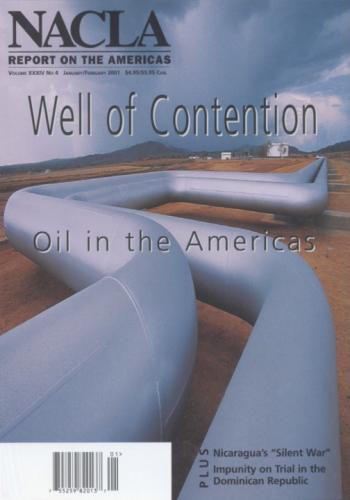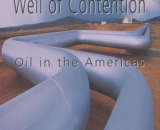Report
Chris Jochnick and Paulina Garzón
In the fall of 1997, a tiny indigenous community deep in Ecuador's Amazonian interior was engaged in fierce negotiations with a team of environmentalists posing as oil executives. The "oil men" were eager to sign an agreement that would allow them access to indigenous lands and were willing to offer almost anything the community desired: a short-wave radio, motors for their canoes, solar panels, a health clinic.
"We are all children of the Earth, help us to defend her." —Berito KuwarU'wa, spokesperson Traditional U'wa Authority
Though Mexico's new, neoliberal President will leave Pemex in state hands, the company will nevertheless take on major features of privatization. In 1992, President Carlos Salinas, in the midst of his drive to privatize the Mexican economy, oversaw the division of the state-owned oil monopoly Petr6leos Mexicanos (Pemex) into four subsidiaries, Pemex-Exploration and Production, Pemex-Refining, Pemex-Gas and Pemex-Petrochemicals.
Sarah Town & Heather Hanson
In rural Tabasco, a swampy state on Mexico's Gulf Coast, a middle-aged farmer named Don Ramón* has spent the past three years organizing his neighbors to protest environmental damage from the oil industry. Don Ramón lives in a farming community near the municipal-ity of Cunduacán.
When we speak about oil in Latin America, there are several new developments we must take into account: first, a wave of mergers and acquisitions among the biggest international oil companies; second, the rise to power of a charismatic nationalist-populist Latin American leader, Venezuela's Hugo Chávez; and finally, the revival of the Organization of Petroleum Exporting Countries (OPEC) and its power to control production and maintain high oil prices.
This past summer, Congress approved a $1.3 billion emergency military aid package destined mainly for Colombia. As a result, that country became the third largest recipient of U.S. assistance (after Israel and Egypt).
Beneath the banks of the Orinoco River in eastern Venezuela lies one of the largest hydrocarbon reserves in the world, a source of oil with enormous potential but with one major complication: All the crude that has been extracted from it is extra heavy, and contains high levels of sulfur and mineral residue.
Several decades ago in the Mexican state of Chiapas and in neighboring Guatemala, geologists discovered deeply buried rock strata of the type that formed oil deposits millions of years ago. Since then, the search has been on for oil in these areas, and in northwestern Chiapas, a good deal has already been discovered and pumped.


